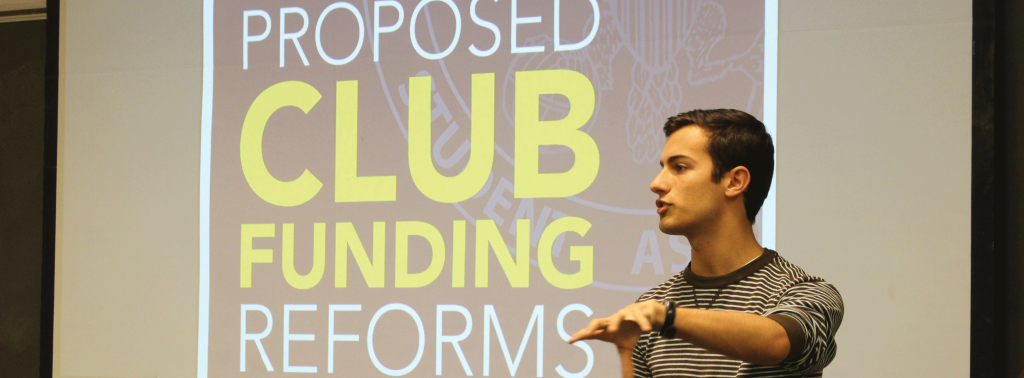On Jan. 20, the Georgetown University Student Association Constitutional Council ruled in favor of a challenge to the Dec. 1 referendum centered on club funding reform, declaring the referendum vote invalid for “violations of the constitutionally required timeline for the publication of the proposed constitutional amendment to the student body.”
This erroneous decision not only serves as a roadblock to making notable changes to club funding but also establishes a dangerous precedent. It implies that the Constitutional Council, or any branch of GUSA, can take advantage of dubious language in the constitution and act unchecked, without justification.
The main claim the Constitutional Council holds for invalidating the results, and therefore striking down club funding reform, is that the senate failed to present the referendum to the student body in a timely and appropriate manner.
If the results of the referendum had held, GUSA would have undergone fundamental changes as an institution. As of now, the Finance and Appropriations Committee, made up of a mere eight senators, is completely responsible for allocating around $1.1 million in funds to different advisory boards on campus. The new assembly would have focused on transparency and efficiency, by expanding fiduciary matters to both elected representatives and appointed delegates from advisory boards.
But the Constitutional Council invalidated the results with little constitutional backing behind the unprecedented move. When pressed to reference a section in the GUSA constitution that grants the Constitutional Council the authority to withhold results, the justices were incapable of providing any evidence.
Additionally, the Constitutional Council cited a Merriam-Webster dictionary definition to justify why the senate’s methods of presentation should not be considered legitimate. They settled on defining the word “present” as, “to bring or introduce into the presence of someone,” and argued “presence” meant, “the part of space within one’s immediate vicinity.”
Firstly, the same dictionary provided other definitions that supported GUSA’s actions, such as defining “present” as, “to bring to one’s attention,” which GUSA did with the social media campaign.
Secondly, the fact that the Constitutional Council took such an audacious move to cherry-pick a definition from the dictionary that best fit their argument in that moment, is not only arbitrary, but also a clearly biased attempt to unfairly categorize the senate’s actions as illegitimate.
Furthermore, the Constitutional Council also interpreted that it has the power to withhold the referendum results from the student body because it has deemed the election invalid.
Making such bold moves without proper justification is dangerous and worrisome. It sets a precedent that any branch of GUSA can just assume powers arbitrarily and without justification, defeating the purpose of a constitution entirely.
It is true that the constitution and the bylaws on referendum elections remain ambiguous. Specifically, there is little reference to how should they be presented to the public, the amount of polling stations and who can work the polling stations.
However, if there is no clear violation of election law for any reasons, then the Constitutional Council cannot and should not declare the referendum invalid. Thus, all claims of the petitioners are proven to be invalid and the referendum validated.
This is not to excuse the fact that GUSA could have — and very well should have — handled the referendum better than it did. While it is logical to believe that the three branches of GUSA should better respect the separation of powers to guard against abuse, a system of checks and balances is just as crucial to prevent the same danger.
Thus, while the Constitutional Council reserves the right to interpret the law, as granted by the GUSA constitution, it does not possess the right to withhold election results without an authority from that same document.
Javon Price is a freshman in the School of Foreign Service.




















